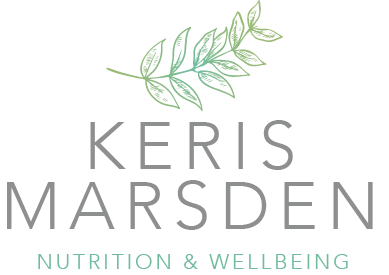5 steps to fix your gut
Addressing digestive issues can be a little complex and for this reason they are rarely resolved via the standard health care options.
Most typically result in a diagnosis of IBS (Irritable bowel syndrome) or acid reflux and the offer of a pill typically buscopan, peppermint capsules or antidepressants for IBS and PPI’s for reflux (esomeprazole, lansoprazole, omeprazole, pantoprazole).
Diet advice is limited to a low FODMAP diet and sometimes the suggestion of avoiding gluten, dairy, spices and coffee.
These rarely work because resolving digestive issues requires a more personalised approach.
The following steps provide a idea of the steps and processes involved in effectively tackling complex digestive issues.
1) Consider possible causes
Many treatments offered for digestive issues are based on symptom suppression but it’s also important to spend time ascertaining the triggers and drivers of your gastrointestinal (GI) problems. Some of them will be modifiable which will help reduce your symptoms and some may help guide further investigate tests and solutions.
A trigger is an event that linked to the onset of symptoms, it could be food poisoning, travel, a new job, medications, surgery or traumatic experiences (bereavement and divorce are common triggers).
Some common drivers for GI issues include diet, stress, mould/damp exposure, exercise, diet, caffeine, nutrient deficiencies, alcohol, eating too fast and infections.
2) Consider testing options
I will often refer clients back to GP to rule out specific conditions if this hasn’t been done.
In some cases it’s useful to have intestinal inflammation markers (calprotectin) checked or some investigate tests maybe necessary to check for gallstones, hernias, polyps, haemorrhoids, diverticular disease, endometriosis and PCOS.
Increasingly a number of my female clients have observed a worsening of digestive issues as they approach peri-menopause and menopause so I will often work with a menopause specialist to assess their hormones alongside the nutrition work we’re doing.
There are also functional tests available outside the NHS that can identify infections, microbial imbalances and other dysfunction within the gut.
I don’t always use them as a first line approach as there’s often some low hanging fruits that cost nothing and can transform digestive capacity (breathing is often one of them).
Stool and breathe testing is helpful identify Small Intestinal Bacterial Overgrowth (SIBO) or dysbiosis (altered balance of microbes in the gut).
These can be treated with specific herbs, targeted probiotics and prebiotics. There are now special antibiotics (Rifaximin and Neomycin) that can safely treat overgrowth of bacteria in the small intestine without impacting the entire gut microbiome.
3) Follow an ancestral elimination diet
Food intolerance testing (not allergy testing) isn’t scientific validated so there’s a chance you may get the green light to eat something that is problematic for you.
These tests only look at proteins and how they interact with your immune system.
It doesn’t account for other factors that cause symptoms, for example, how foods are paired together. You may be fine to eat a little goat’s cheese but once you put the cheese with sourdough bread you’re combining lactose, yeast and wheat which all ferment in the gut and may lead to excessive bloating, gas and abdominal pain for you.
For my clients with IBS fibre can often be problematic. They notice nuts, seeds, raw salad or legumes (chickpeas, beans, lentils) create symptoms.
Elimination diets are the gold standard to help establish possible food triggers but also because they can be hugely supportive in restoring gut function and stopping the cycle of symptoms.
Adopting an ancestral nutrition template and minimising processed foods sugars can help rebalance the digestive tract. It not only provides the nutrients needed for repair like zinc and vitamin A, it also results in the removal of things like preservatives, sweeteners, refined sugar and fast acting yeast which can have a negative impact on the microbes in the gut.
Alongside an elimination diet you can also restore function with supplements like probiotics, prebiotic, digestive enzymes and other nutraceuticals (e.g. vitamin D, green tea or glutamine). Ideally do this under professional guidance as these products can be expensive and might be a waste of time or even worsen symptoms.
4) Look at your lifestyle
How you think, how you eat (the pace and environment) and the quality of your sleep has a huge impact on your digestive health.
They also tend to be linked, when you’re stressed you eat quicker, relax less (so have no time to rest and digest) and your sleep quality suffers.
You can easily find yourself in a vicious cycle that impacts digestive capacity and motility (how the gut move things along).
Here’s a few things that help many of my clients:
Reframe digestive issues as your body calling out for some self care
Factor in more relaxation breaks, especially around mealtimes
Walk after meals, even just 5 minutes but ideally 20-30 minutes to support digestion and the passage of any wind. A couple of wind walks a day can help keep the bloating at bay.
Practice saying ‘no’ more so you can keep your task list realistic and protect time for yourself. This will help you slow down the pace of your day and your gut will be grateful.
Set aside time for breathing exercises, meditations or yoga, if you search online there are many designed for digestive symptoms.
5) Get Some Professional Support
Sometimes it’s hard to figure all this out yourself and best to outsource the task of fixing your gut to a professional. Particularly if you’re going round in circles or delaying action as there’s never a convenient time.
A wise man once said ….
“All diseases begin in the gut”
This means the longer symptoms persist the more the digestive system can start to impact other aspects of your health including mood health, energy, blood sugar regulation, skin and hormones.
I have over 10 years experience working with individuals to address IBS, coeliacs, Crohn’s, colitis, constipation and acid reflux. If you’d like to discuss working together you can book a free 15 minute discovery call.

